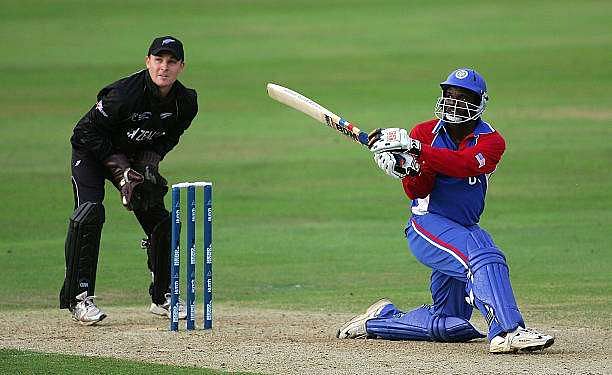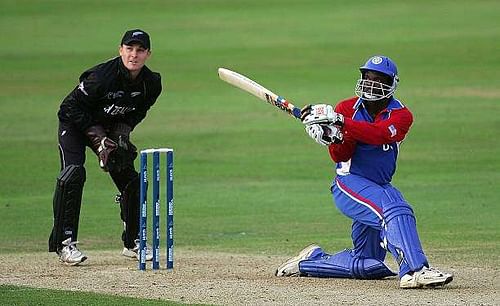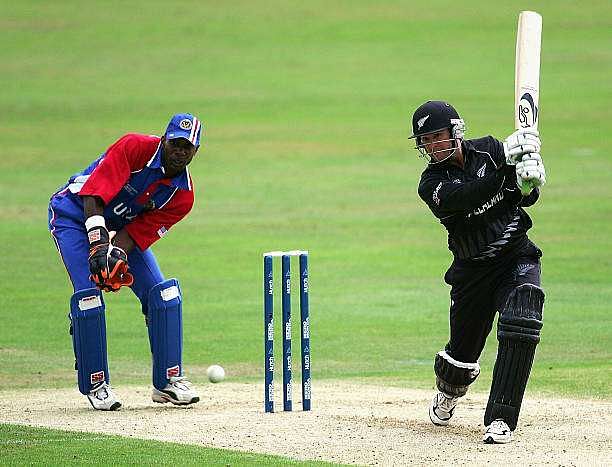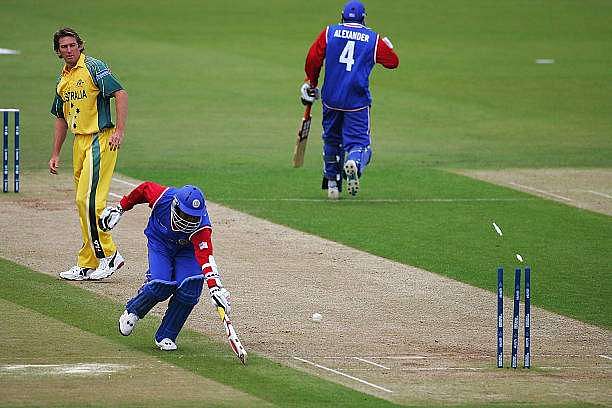
ICC Champions Trophy 2017: Remembering USA's disastrous Champions Trophy campaign in 2004
Ever since fluttering into life in 1998, the Champions Trophy has held the image of being a poor man’s World Cup. Although the primary objective is to produce funds for the developing countries, the tournament was and still is, perceived as just another mode to fill the chief cricketing body’s coffers.
Nowadays, with the congestion of fixtures owing to the demands of the international calendar (allied to the intransigence of the powerful members of the ICC), the tournament has struggled to bear its own. And, in all honesty, not many had mourned its absence in the last four years.
But today is about another story. A story about when the United States of America (yes, you read it right) played in the ICC Champions Trophy in 2004, a tournament which was dubbed by many to be one of the “Great Sporting Fiascos of our time”.
Not many recent cricket fans would be in the know of a team from the States. That is, of course, because the team has largely been in the shadows in the last decade or so. In fact, the USACA, the cricket board of the USA, was suspended by the ICC in June 2015 because there were “significant concerns about the governance, finance, reputation and cricketing activities of USACA.”
Again, this story is not about that. It is about the glory days (or what could have been the glory days) of the USA national cricket team. Back in 2004, it was England’s turn to host the prestigious Champions Trophy. However, a jam-packed summer schedule meant that the tournament had to be squeezed in right at the fag-end of the cricketing season.
Back then, the sport was at its pinnacle in terms of popularity in the Middle-East and the South Asian and Western countries were slowly catching up. The new format, which featured 12 teams, was first introduced in the 2002 edition and extended to the 2004 addition as well.
The eight top-ranked teams and four other teams, who would be decided via a qualifying competition, would constitute the 12 teams. USA had qualified after winning the ICC Six Nations Challenge by the narrowest of margins, 0.028 of a run to be precise. They had pipped Scotland, UAE, Namibia, and the Netherlands on net run-rate to qualify as the only team without official ODI status.
Jamaican-born cricketer Richard Staple was named as the captain of the squad to lead the team in England. Before the tournament kicked off, the captain had claimed that the people of America would take notice of their involvement in the ICC event. In hindsight, he would have hoped that his countrymen had forgotten to tune in for either of the matches the USA played.
It was unfortunate that they were pooled with Australia and New Zealand in the group stage. Winning the Six Nations Challenge is one thing, facing fiery Australian and Kiwi fast bowlers on seaming English pitches livened up by the rain is something entirely different. While no one expected them to pull off an upset, the manner in which they lost both the matches was humiliating, to say the least.
Their first match was against the Kiwis, the lesser of the two devils, one might say. A short spurt of rain that delayed the start of the match by an hour ensured that the outfield was soggy and the conditions dank. Batting first, New Zealand found themselves in a spot of bother during the initial stages as the American new-ball bowlers, Howard Johnson and Tony Reid, generated enough swing and movement.
However, Nathan Astle and Scott Styris forged a recovery. When Craig McMillan joined Astle in the middle, the score read 211 for four in 42.2 overs. With a plan to avoid the slow outfield and go over the top, the pair added 136 runs in the final 7.4 overs to help the team put 347 runs on the board. Astle, in the process, completed his 14th international century.
The USA began the chase in a spirited manner, reaching 52 for no loss in nine overs. However, they managed to add only 85 more as Jacob Oram scalped five wickets. New Zealand won the match by 210 runs, their biggest win margin at the time.
It was always going to be a tournament mired in mismatch but among them, Australia vs the USA was the biggest. Ricky Ponting, the Aussie skipper, had one simple plan – to get the Americans to bat first and then finish the game swiftly so as to boost their net run-rate in the case of a washout in the decisive match against New Zealand.
The toss went Ponting’s way and after that, it was only a matter of time. No one would have guessed though that ‘the matter of time’ would only be 2 hours and 44 minutes. On a sluggish pitch, Brett Lee, Jason Gillespie and Michael Kasprowicz ran riot, scraping the Americans for 65 – the lowest total in the history of the Champions Trophy.
After Mark Johnson was yorked by Lee on the second delivery of the innings, the American batsmen hardly managed to get bat on ball. In reply, Adam Gilchrist, Matthew Hayden and Ponting took only 7.5 overs to cruise to victory. The Australian skipper, however, was in a scathing mood in the post-match conference.
"We didn't get a whole lot out of this match," he said. "Hopefully, USA did, otherwise it would have been a bit of a waste of time."
"We want to be tested by the best teams all the time and I'm not sure we were tested too much today. I'm not convinced that the Champions Trophy and the World Cup is the place for these sides to perform. I think they have to dominate in other tournaments for longer periods of time before they play at this level," he added.
The Americans probably weren’t too disheartened by the results. The way they piled into the Australian dressing room showed a willingness to learn, albeit the fact that such was the gulf between the qualities of the two teams that they could have gone to collect autographs.
In reality, they shouldn’t have been in the tournament in the first place. The ICC should have put them in a tournament alongside the likes of Kenya, Bangladesh and Zimbabwe where they would have been able to compete in a better manner.


